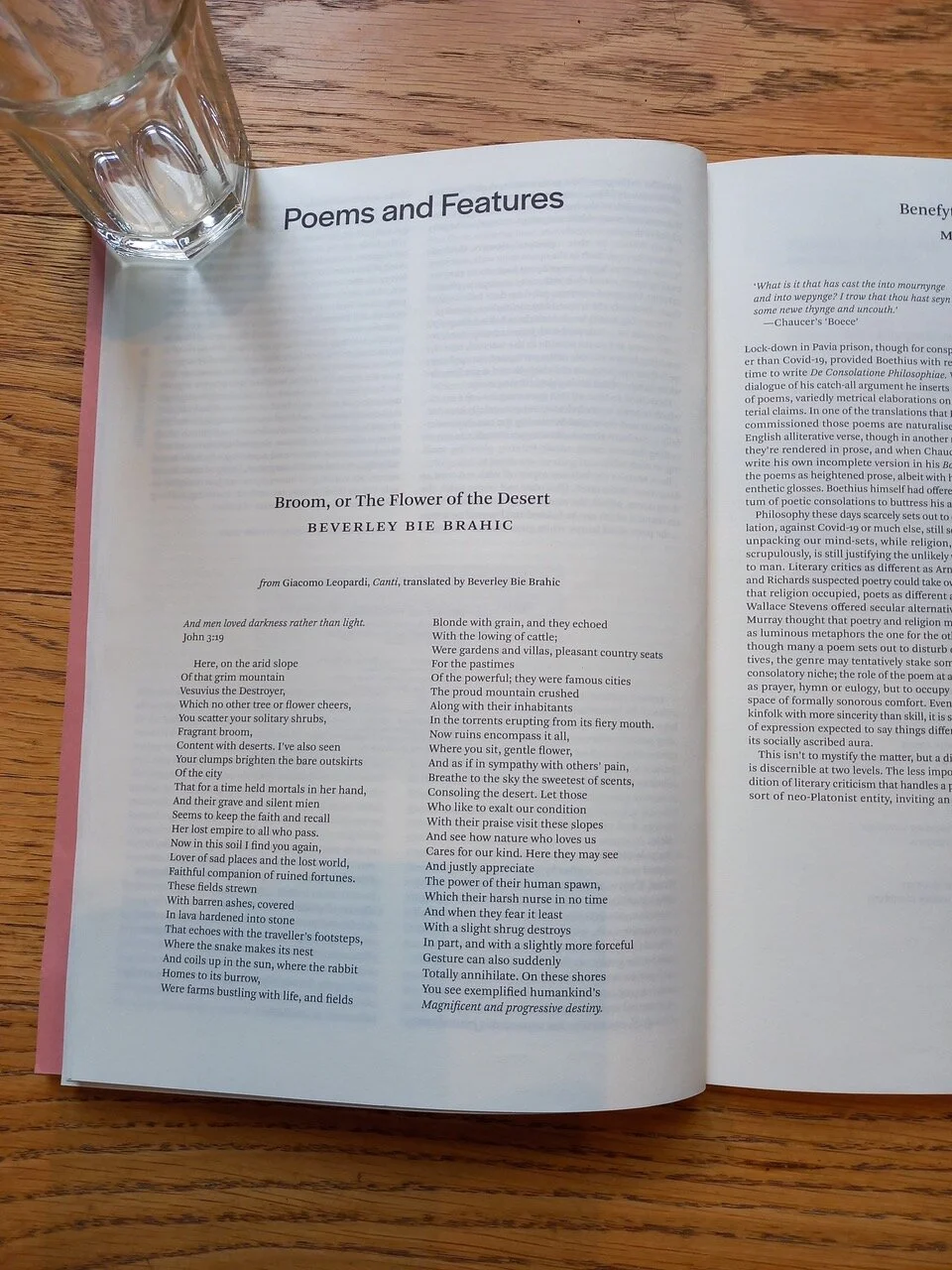Giacomo Leopardi (Italy, 1798-1837)
For the last couple of years I have been translating the very great Italian poet, Giacomo Leopardi. I think I first became interested in Leopardi while I was translating the French poet Yves Bonnefoy. Before that I think I’d probably only ever read Leopardi’s ‘To Silvia.’ Bonnefoy admired Leopardi (as lots of poets do) and wrote at least one poem in homage to him.
Some months ago I felt that the first stanza of Leopardi’s long, semi-philosophical poem ‘Broom,’ set on Mount Vesuvius, might be ‘done’ and I sent it to Michael Schmidt, the editor of PNReview, where it has just appeared. There is a paywall, so I am going to print a photograph of the page on which it appears below, because Leopardi is not very well known in the anglophone world and because he is such a very great figure in European poetry. It is true that he is a pessimist; it is also true that he paints his native region, its poorer inhabitants, and the surrounding countryside with the sensuousness of a Poussin, or a Corot or, dare I say, a Constable.
I was saying to someone—well, not actually saying—this was in an email, that working an hour or two every day for months, on translating Leopardi’s Canti is a lot like standing in the Louvre day after day for months, as artists used to (still?) do copying some monument of painting—a Rembrandt, let’s say—and trying to get it right. I’m not trying to impose my own vision on this poem; I just want to reproduce it as faithfully as possible—accurately!—but that of course isn’t just a semantic problem; it includes reproducing all the intangibles that few people consider when they think of translation: the music, the rhythm, the lighting, the total effect on the reader-viewer. (My mother could never get her head around the difficulties of translation; she thought it should be semi-automatic, like transcribing shorthand or typing from a dictaphone, and that it should go very fast, one word after another…).
And now I must go a do three more lines, a sentence, a stanza, of Leopardi’s Canto XXV: ‘Saturday in the Village,’ with its sunset and peasants returning from their fields, its carpenter working late, its young people dancing.

